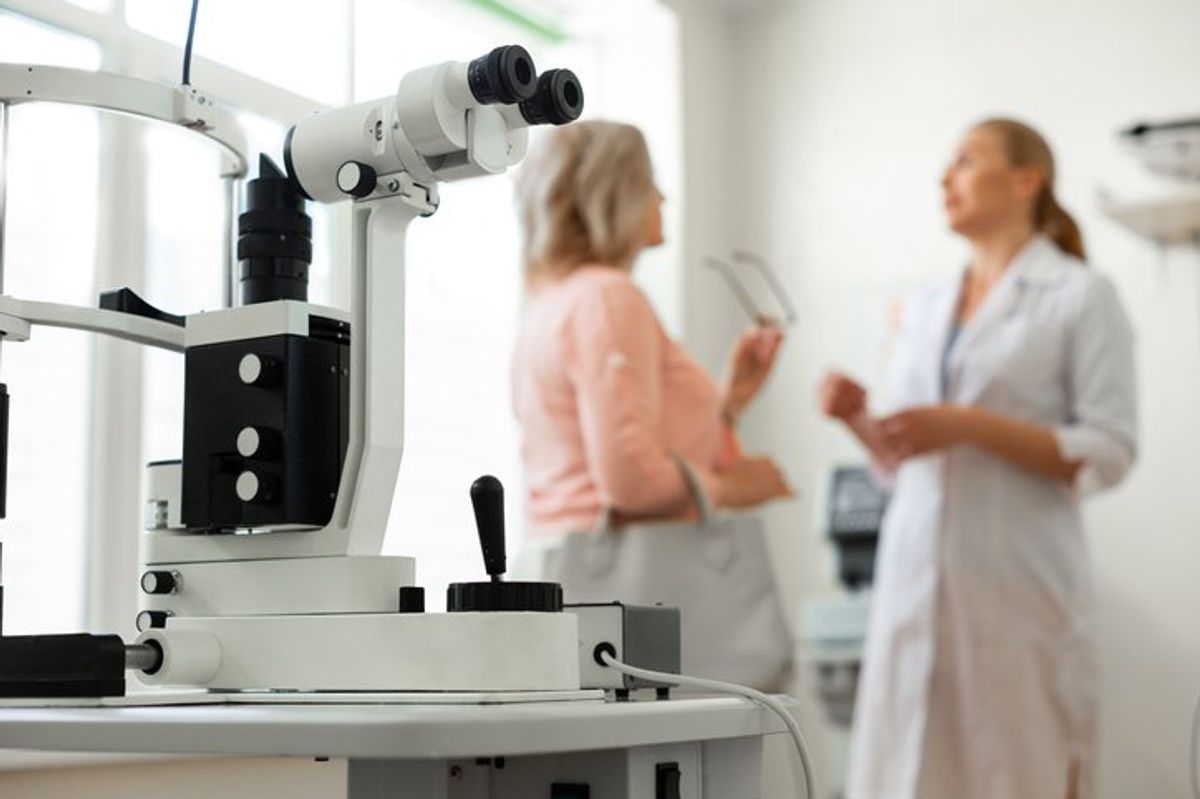If you or someone you know has been diagnosed with thyroid eye disease (TED), it’s important to know that diagnosis and treatment require a thyroid eye disease specialist. TED specialists are ophthalmologists (a doctor who treats eye and vision issues) who have advanced training in thyroid eye disease.
Having this information will also help you advocate for your health so you can get the appropriate care.
Here’s a list of questions to ask at your upcoming appointments.
What is thyroid eye disease?
TED is an autoimmune disease that causes the eye muscles and fatty tissue behind the eye to become inflamed.
What are the symptoms of thyroid eye disease?
The first signs of TED can include eye pain, light sensitivity, bulging eyes, watery eyes, red eyes, double vision and puffy eyelids. The disease can be difficult to diagnose because the symptoms can be mistaken for pink eye, allergies or hay fever.
What causes thyroid eye disease?
TED is most commonly related to Graves’ disease, an autoimmune disorder that leads to overactive thyroid (hyperthyroidism). But thyroid eye disease can also occur with normal thyroid hormone levels or low thyroid hormone levels. Ask your healthcare provider about risk factors.
Who will make up my treatment team for thyroid eye disease?
A treatment team can include ophthalmologists, oculoplastic surgeons who specialize in surgery around the eye and of facial tissues, endocrinologists (hormone doctors) and others.
Should I be keeping track of my thyroid eye disease symptoms?
It’s a good idea to write your symptoms down, so you can be aware if they change. Sometimes TED can result in medical emergencies. Ask your HCP which thyroid eye disease symptoms are a sign that you should get immediate medical attention.
How often will I need appointments for thyroid eye disease?
The number of appointments and how often you’ll need them will be different for everyone. Be sure to ask your HCP how often they want to see you so you can be prepared.
What are my treatment options?
Treatment options include surgery, radiation, steroid medications and monoclonal antibody treatment, among others. Everyone’s experience with thyroid eye disease is different, so it’s important to work with a thyroid eye disease specialist to determine what is best for your case.
This resource was created with support from Horizon.
- Let’s Talk About Thyroid Eye Disease (TED) ›
- Ask the Expert: Thyroid Eye Disease ›
- The Phases of Thyroid Eye Disease ›
- Thyroid Eye Disease 101 ›







